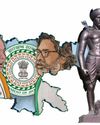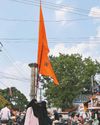Do private schools outdo government schools? No proof exists for that.

The phenomenon of private schools expanding at an annual rate of 35 per cent naturally raises one question: are they better than state-run ones? One might also ask if India needs more private schools than public (government) institutions. It’s about time to clear the air over available data-based evidence on whether private schools are worth their money.
The answers are linked to a simple truth: India has made schooling universal and compulsory. It’s not the same thing as making good-quality education universal. So, a general perception of abysmal state education quality—quite common in recent decades—means more and more highly priced private schools.
There is little available by way of national studies that comprehensively compare the two systems. The most widely accepted survey—the Annual Status of Education Report (ASER) which is in its 11th year—measures overall learning levels among Indian pupils. The picture, as it states in its 2016 report, is “pretty disappointing”. According to ASER 2016, data from 589 rural districts of India (over 80 per cent of the total districts), only 48 per cent of students in class 5 can read a Class-2 level textbook. Math skills aren’t any better. The share of Class 8 students in rural India who are able to correctly divide a three-digit number by a single-digit dropped to 43 per cent in 2016 from 44 per cent two years ago.
Such granular findings aren’t available nationally for private schools, whose high fee structures, opposed by parents, are now embroiled in court battles in many states. Despite a landmark law—The Right to Education Act, 2009—making free school education a right, evidence is now clear that more new private schools are being added than government schools. Yet, no privately funded Indian school stands out in global rankings.
Diese Geschichte stammt aus der October 09, 2017-Ausgabe von Outlook.
Starten Sie Ihre 7-tägige kostenlose Testversion von Magzter GOLD, um auf Tausende kuratierte Premium-Storys sowie über 8.000 Zeitschriften und Zeitungen zuzugreifen.
Bereits Abonnent ? Anmelden
Diese Geschichte stammt aus der October 09, 2017-Ausgabe von Outlook.
Starten Sie Ihre 7-tägige kostenlose Testversion von Magzter GOLD, um auf Tausende kuratierte Premium-Storys sowie über 8.000 Zeitschriften und Zeitungen zuzugreifen.
Bereits Abonnent? Anmelden

Trump's White House 'Waapsi'
Donald Trump's victory in the US presidential election may very well mean an end to democracy in the near future

IMT Ghaziabad hosted its Annual Convocation Ceremony for the Class of 2024
Shri Suresh Narayanan, Chairman Managing Director of Nestlé India Limited, congratulated and motivated graduates at IMT Ghaziabad's Convocation 2024

Identity and 'Infiltrators'
The Jharkhand Assembly election has emerged as a high-stakes political contest, with the battle for power intensifying between key players in the state.

Beyond Deadlines
Bibek Debroy could engage with even those who were not aligned with his politics or economics

Portraying Absence
Exhibits at a group art show in Kolkata examine existence in the absence

Of Rivers, Jungles and Mountains
In Adivasi poetry, everything breathes, everything is alive and nothing is inferior to humans

Hemant Versus Himanta
Himanta Biswa Sarma brings his hate bandwagon to Jharkhand to rattle Hemant Soren’s tribal identity politics

A Smouldering Wasteland
As Jharkhand goes to the polls, people living in and around Jharia coalfield have just one request for the administration—a life free from smoke, fear and danger for their children

Search for a Narrative
By demanding a separate Sarna Code for the tribals, Hemant Soren has offered the larger issue of tribal identity before the voters

The Historic Bonhomie
While the BJP Is trying to invoke the trope of Bangladeshi infiltrators”, the ground reality paints a different picture pertaining to the historical significance of Muslim-Adivasi camaraderie